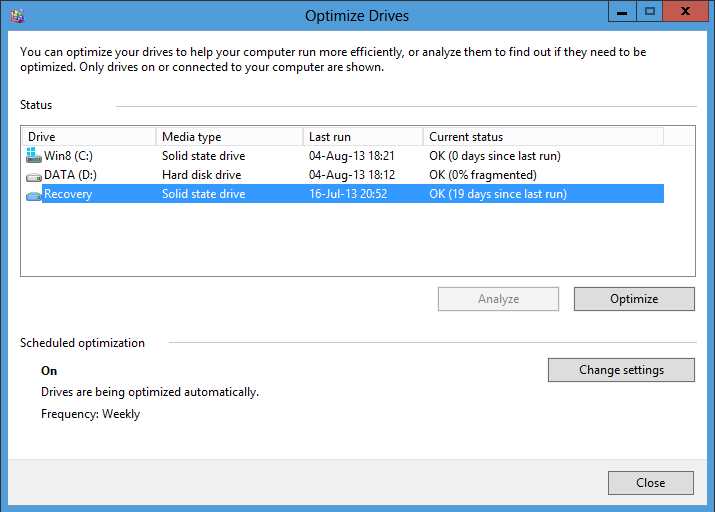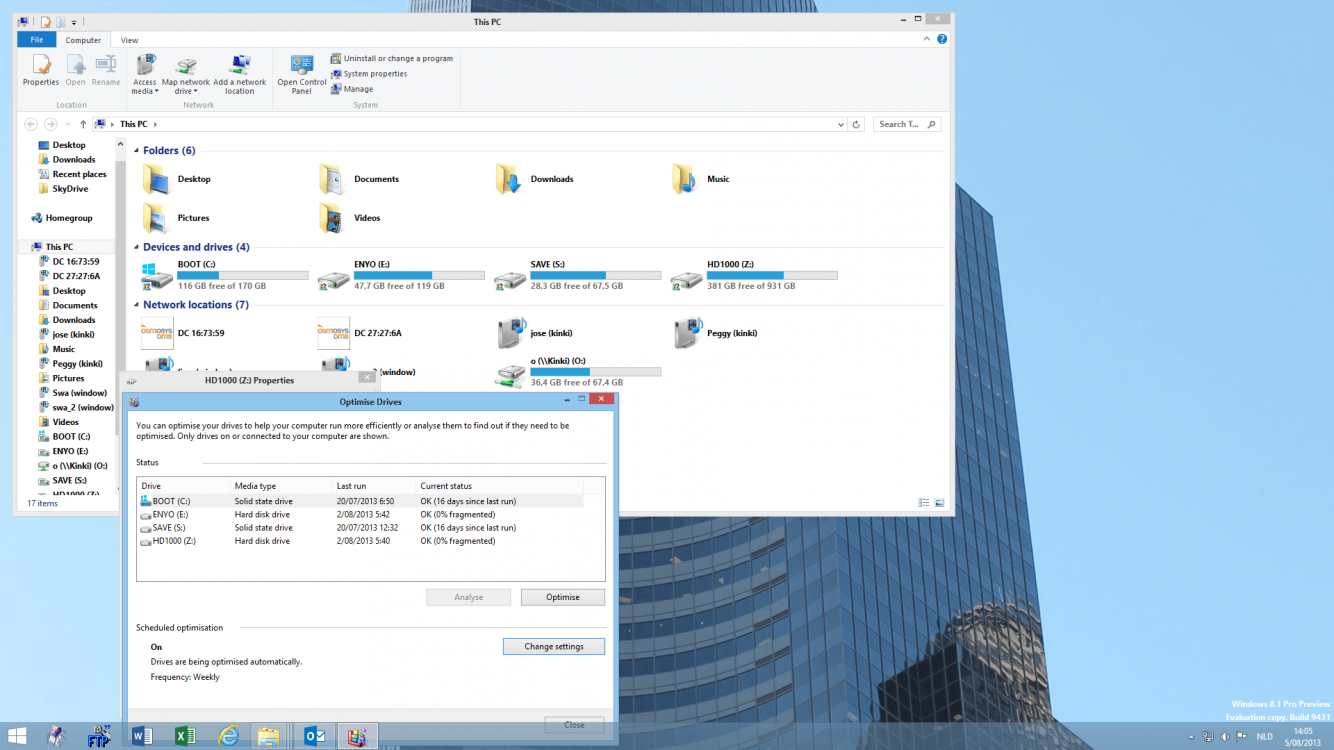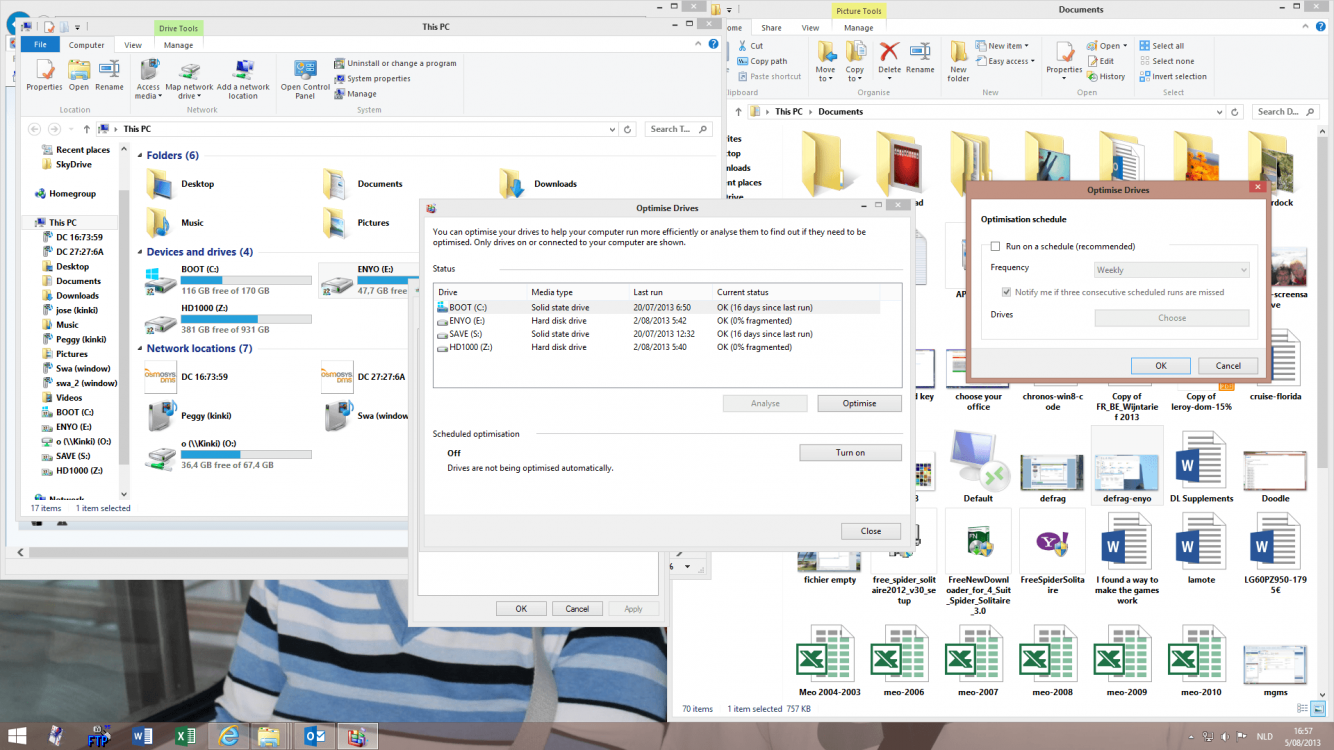Hi Jimbo,
We can't see what hardware is doing, but it's enough to know what it's doing. It doesn't look like you've provided any explanation, so let me fill in the blanks.
On SSDs, Windows uses LBAs, exactly the same way as with HDDs. So there are in fact classical sectors, if this is what you're referring to. The difference is that on SSDs LBAs are logically mapped to physical NAND cells. That's the hardware design.
The software design is to send TRIM commands when a file is deleted, so the SSD controller can take care of it during its maintenance procedures, and not when OS tells it to write in this LBA, like happens on HDDs. This would cause performance degradation, so it's a clever system!
The controller doesn't care about fragmented file system, all it cares is NAND fragmentation, and it takes care of it with Garbage Collection / NAND defrag.
Now, imagine, you're the controller who just perfectly defragged NAND, everything is neat and clean. Then, all of a sudden, the OS performs the file system defrag that results in moving fragments and writing them to disk. Too bad, you've got to defrag NAND again, because it's not perfect anymore.
SSD controllers are indeed intelligent and they won't get mad at you for making them clean their house twice But I'd really prefer to stick the discussion to the software side of things, because this is what matters here.
But I'd really prefer to stick the discussion to the software side of things, because this is what matters here.
Vadim
We can't see what hardware is doing, but it's enough to know what it's doing. It doesn't look like you've provided any explanation, so let me fill in the blanks.
On SSDs, Windows uses LBAs, exactly the same way as with HDDs. So there are in fact classical sectors, if this is what you're referring to. The difference is that on SSDs LBAs are logically mapped to physical NAND cells. That's the hardware design.
The software design is to send TRIM commands when a file is deleted, so the SSD controller can take care of it during its maintenance procedures, and not when OS tells it to write in this LBA, like happens on HDDs. This would cause performance degradation, so it's a clever system!
The controller doesn't care about fragmented file system, all it cares is NAND fragmentation, and it takes care of it with Garbage Collection / NAND defrag.
Now, imagine, you're the controller who just perfectly defragged NAND, everything is neat and clean. Then, all of a sudden, the OS performs the file system defrag that results in moving fragments and writing them to disk. Too bad, you've got to defrag NAND again, because it's not perfect anymore.
SSD controllers are indeed intelligent and they won't get mad at you for making them clean their house twice
Vadim
My Computer
System One
-
- OS
- Windows 8 Pro x64
- Computer type
- Laptop
- System Manufacturer/Model
- HP Pavilion dv7t (17.3'', i7-2630QM, HD 6770M 1Gb, 8Gb RAM, 2 SSD@120Gb + 1 HDD@750Gb)







